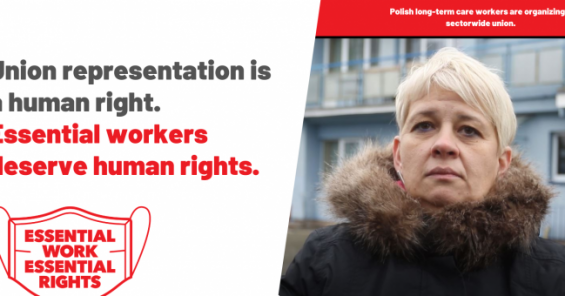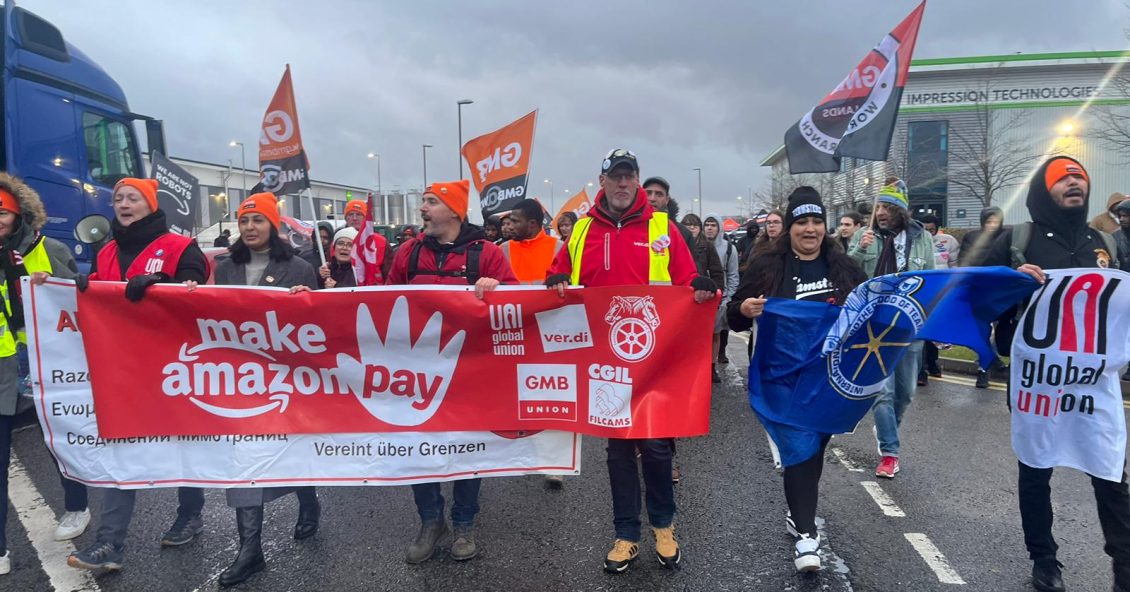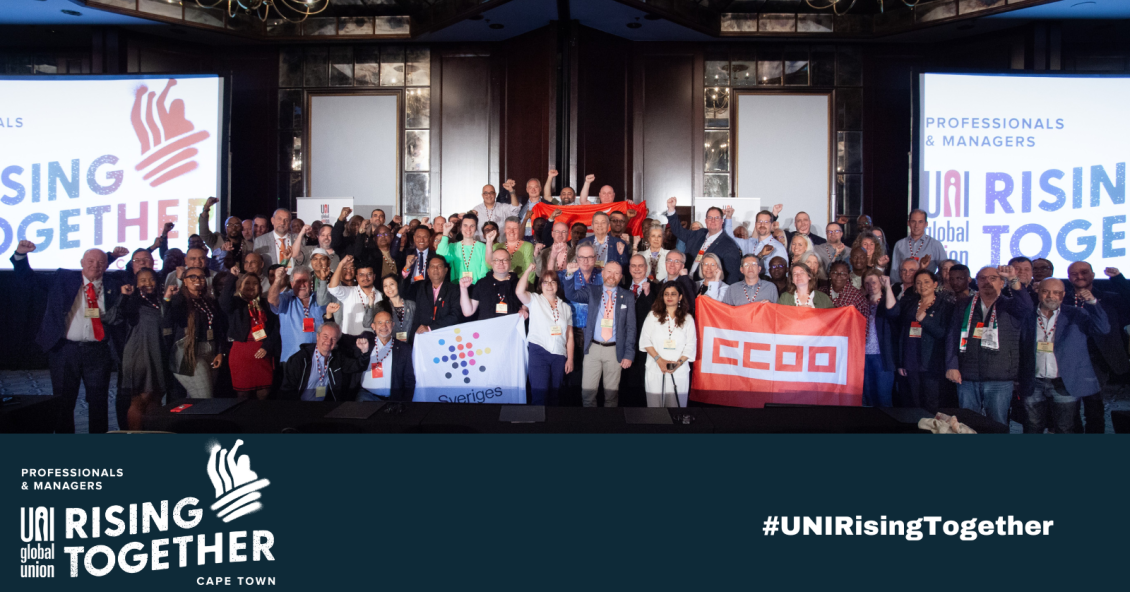UNI Global Union is honouring International Human Rights Day by calling for essential rights for essential workers.
“Today we celebrate the adoption of the Universal Declaration of Human Rights, but seventy-two years after its ratification, too many of its promises remain unfulfilled, especially when it comes to working people” said Christy Hoffman, UNI Global Union General Secretary. “The pandemic has shown us how the workers we rely on the most are the ones whose rights are protected the least.”
Essential workers ensure that there is food on the shelves; care for the sick and elderly; and keep our schools, workplaces, and public spaces safe and sanitary. They deliver our mail and packages and provide vital access to financial services.
Although they keep our communities running, they are too often overlooked, undervalued, and mistreated. Among the lowest paid workers in most countries, many have no right to sick leave, home and residential eldercare workers were among the last to receive PPEs during the pandemic, and far too few have voice, protections, or rights through a collective bargaining agreement. It is no surprise that the essential workers were most likely to become infected with COVID-19.
In response, UNI launched its #EssentialRights campaign in October calling for fair pay, union rights, safe condition, paid sick leave, and the respect they deserve during a crisis and in calm. These demands are in line with those enshrined in the Universal Declaration of Human Rights (UDHR), particularly the enabling rights of collective bargaining and freedom of association. The UDHR also includes remuneration that supports an “existence worthy of human dignity” and the right to life, which was threatened by unsafe work during the pandemic.
One of the most critical rights for these workers, and a human right too often denied, is the right to a union.
For millions of essential workers, having a union made the difference between having protective equipment, training, a health and safety committee, and hazard pay or not. Unions have also allowed workers to freely speak out about dangerous conditions on the job without fear of intimidation.
“Right from the start of the pandemic, our union made sure that frontline workers were protected,” said Nawal Arslan, a Moroccan care worker and member of CNSS Union Marocaine de Travail. “They ensured that we had proper access to PPE, safe social distancing measures at work and that those in high-risk groups could telework.”
Over the past year, unions like Nawal’s have campaigned for—and won—these essential rights for workers all over the world.
These include the UFCW winning hazard pay for nearly 125,000 grocery workers in the United States to Australia’s SDA campaigning for an “essential pay rise.” IG BAU raised the minimum wages for 700,000 cleaners in Germany. In country after country, nursing home and long-term care workers have united, like those in Poland, for pay and personal protective equipment, and health care workers in Zimbabwe have struck for better conditions.
Join our demands on Twitter, Facebook, and Instagram by using the hashtags #EssentialRights and #HumanRightsDay.



